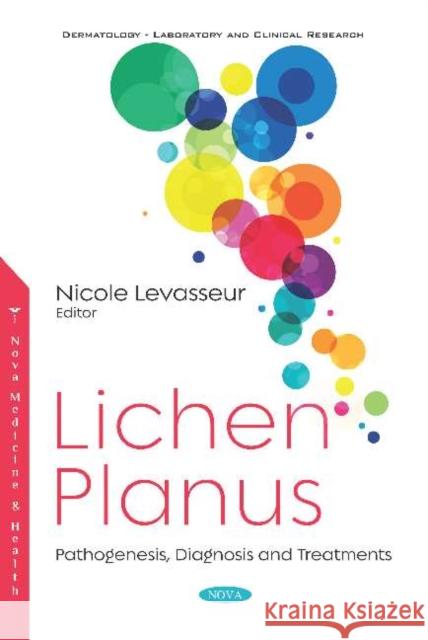Lichen Planus: Pathogenesis, Diagnosis and Treatments: Pathogenesis, Diagnosis and Treatments » książka
Lichen Planus: Pathogenesis, Diagnosis and Treatments: Pathogenesis, Diagnosis and Treatments
ISBN-13: 9781536168471
Lichen Planus: Pathogenesis, Diagnosis and Treatments begins by discussing lichen planus pemphigoides, a rare acquired autoimmune blistering disease combining clinical, histological and immunopathological features of both lichen planus and bullous pemphigoides. Lichen planus pemphigoides is clinically characterized by the development of vesicles and bullae within pre-existing lesions of lichen planus or normal-appearing skin. Also discussed is oral lichen planus, a common chronic inflammatory disease commonly found in middle-aged women. It can appear in several forms which may occur separately or simultaneously: atrophic, bullous, erosive, papular, pigmented, plaque-like, and reticular. The treatment of patients with lichen planus must be individualized. Recent reviews suggest that the most promising treatment remains high-potency topical corticosteroids, whereas systemic corticosteroids may be occasionally indicated. Nail lichen planus is an onychodystrophy that occurs in about 10% of patients with lichen planus. It may be the only manifestation of lichen planus leading to a diagnostic delay. The authors explore how topical calcineurin inhibitors such as tacrolimus and pimecrolimus could be an effective and safe therapy. The closing chapter examines how the use of light therapies in lichen patients seems to be promising. Treatment efficacy depends on the parameters chosen by the operator, mainly the wavelength and energy. Therefore, further clinical trials are needed to determine the finest parameters and the optimal indications of photodynamic therapy and low-level laser therapy for the treatment of lichen planus.











